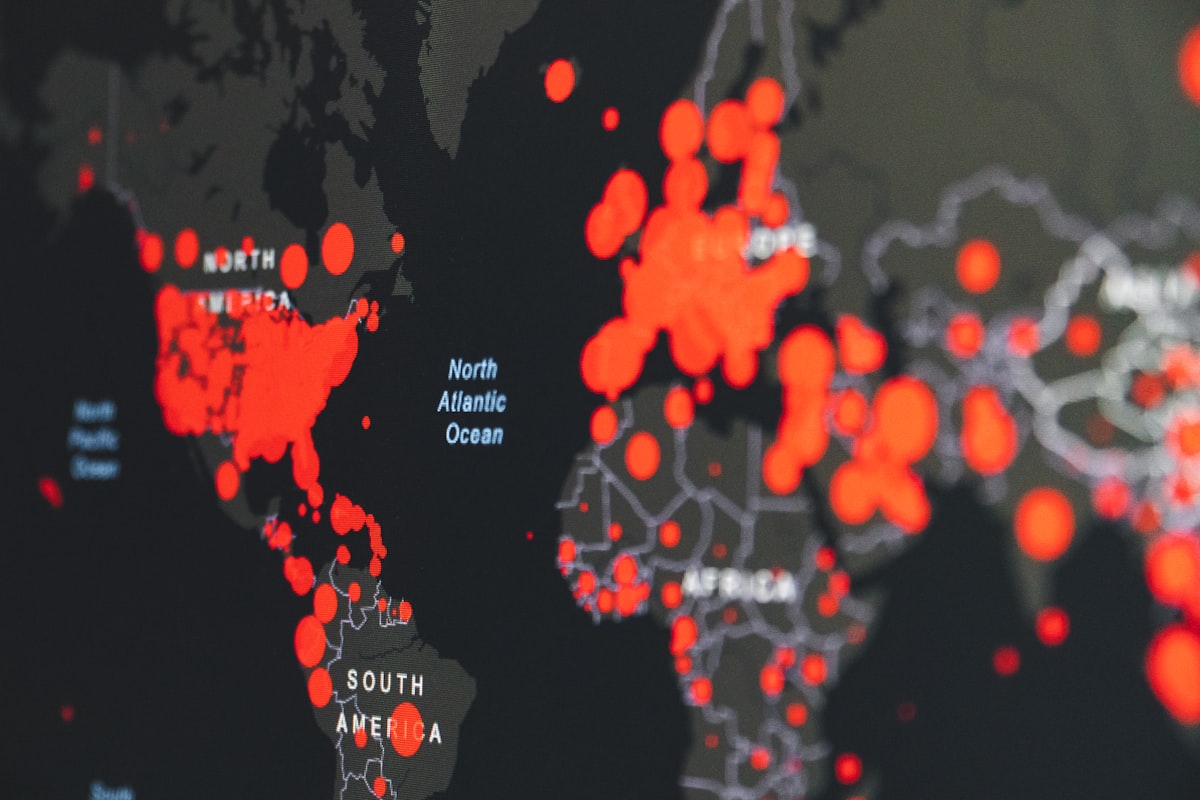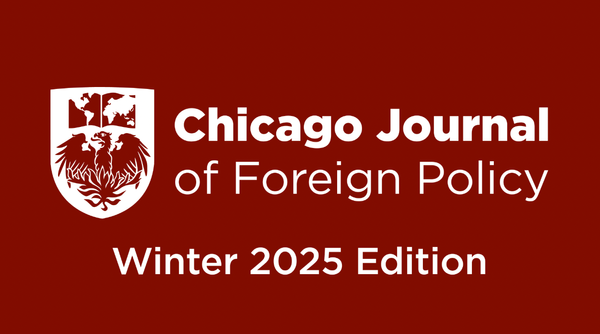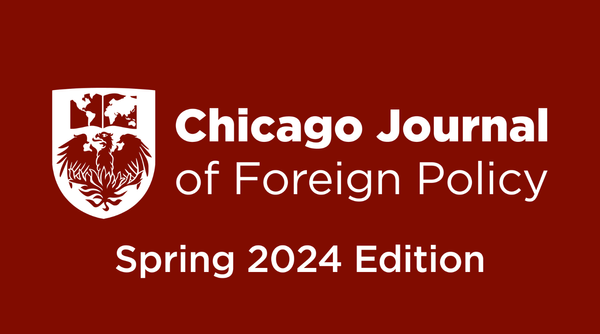The United States and the World Health Organization: America’s Integral Role

By Lindsay Greenspan, University of Chicago
The first principle of the World Health Organization (WHO) Constitution reads, “Health is a state of complete physical, mental, and social well-being; and not merely the absence of disease or infirmity.” This statement highlights the WHO’s role in humanitarian global aid and health standards, which the United States has supported since the WHO’s origination in 1948. On average, the United States provides between $400 million to $500 million USD annually, out of the WHO’s biennial budget, which member states set at $6.86 billion USD for the 2024-2025 biennium. These contributions make the U.S. the largest monetary contributor to the WHO
Debates sparked over the United States’ membership, and former President Trump attempted to withdraw the United States from the WHO after the beginning of the SARS-CoV-2 Pandemic in 2020. Trump suspended U.S. financial support of the WHO during this process. Though President Biden promptly resumed U.S. funding in January 2021, these actions prompted a greater national conversation surrounding the role of the U.S. in the WHO, and whether the significant funding provided by the U.S. is beneficial to both the United States and other member states.
The WHO was founded on April 7, 1948, and since then, this specialized agency of the United Nations worked to create international mandates and regulations in pandemics and epidemics, including smallpox, polio, Ebola, and most recently, COVID-19. Overall the agency works across international borders to promote global health and to take command during threats to international health.
The WHO receives funding in two different ways: assessed contributions and voluntary contributions. Assessed contributions are the funds expected from each member-state, based on the member-state’s population and income. Voluntary contributions refer to supplemental funds donated by member-states, and donations from private charities, individuals, or organizations, such as the Bill and Melinda Gates Foundation. According to KFF, with the exception of the 2020-2021 cycle, the United States has been the largest donor of both assessed and voluntary contributions. Consistently, the U.S. has contributed 22% of all assessed contributions, the largest of any member state and the maximum allowed contribution. On average, these assessed contributions ranged from $110 million USD to $123 million USD. On top of this, the majority of U.S. contributions remain voluntary. In the 2017 FY, the U.S. gave the WHO $402 million in voluntary contributions, a record high.
Despite these large monetary contributions, discourse around the productivity of the WHO and whether the U.S. should continue its copious aid remain. Though the WHO provides continuous support through partnership with nonprofit organizations, charity foundations to issue vaccines and disease treatments for children and adults who cannot travel or afford treatment, critics of the WHO argue that necessary reform must be introduced soon to streamline assistance to marginalized populations and provide critical assistance in times of crisis.
The deficiency of international guidance during the Ebola outbreak highlighted the weaknesses of the WHO in contagion emergencies. Although Nigeria succeeded in containing the virus after its first case in July 2014, the WHO responded slowly to the virus and did not provide much international guidance or aid in a timely manner, according to the Washington Post. Nigeria’s success in containing Ebola hailed from previous epidemic technology, such as a previous polio surveillance system and “skilled outbreak specialists” who were able to quickly adapt to the challenges presented by Ebola. In contrast, other West African nations that did not have the same level of economic success or infrastructure as Nigeria struggled under the pressure presented by the epidemic, such as Sierra Leone, Guinea, and Liberia. Although the containment of Ebola was successful when weighed against the rate of contagion and deadliness of the virus, the WHO did not respond in a swift manner or provide strict health mandates and aid. This epidemic taught the global health community important lessons in disease prevention.
Despite these challenges that the WHO does not necessarily tackle in the most productive manner, the WHO still provides critical global medical aid. The WHO works closely with global nonprofits and charities such as UNICEF, Doctors Without Borders, the International Federation of the Red Cross, and Red Crescent Societies to mitigate healthcare struggles and reduced access. The WHO provides much-needed access to healthcare in rural and impoverished communities, a crucial subset of universal healthcare. For example, Rwanda, along with other nations, contains a large population of citizens with no access to basic health necessities. Approximately “one-third of expenditures … are already devoted to upgrading health-care infrastructures and to training and capacity building for health-care personnel,” according to the WHO’s website. These necessities include food, water, first aid materials, and medicine. Although the WHO aims to aid all people needing medical attention, “the majority of total health expenditures in most developing countries are funded through households’ out-of-pocket payments at the point of consumption. Though the WHO works to reduce this economic burden, it remains a critical need. While the WHO distributes assessed and voluntary contributions to various needs around the world, the subsidy of first aid, medication, and services to developing nations remains an evolving and ongoing goal of the WHO.
Further, the WHO implements its beneficial humanitarian power in the international community for situations requiring an emergency medical response to natural disasters. In crises such as tsunamis, earthquakes, hurricanes, or severe storms, the WHO’s Emergency and Essential Surgical Care (EESC) unit flies in and administers needed medical care. The WHO stated that over “2.6 billion people have been affected by natural phenomena,” and the EESC aids displaced and injured persons around the world. This branch of the WHO utilizes a large quantity of funding because these services operate on a need-based plan, and therefore cannot be anticipated far in advance. Developing nations lack the funding in emergencies to aid their citizens, and the contributions provided by the U.S. supports nations and the international community during these emergencies.
Pandemic and epidemic response remains one of the most crucial contributions of the WHO. The COVID-19 pandemic brought previous pandemic responses to the forefront of news around the world as epidemiologists looked to past successes and failures to try to cure the novel SARS-CoV-2 virus. The WHO declared, for the sixth time since the organization’s inception, the COVID-19 pandemic a “public health emergency of emergency concern, known more commonly as a PHEIC. According to CFR, the WHO issues “nonbinding guidance to its members on how they should respond to the emergency” during a PHEIC. These guidelines, which most member-states choose to follow, include travel guidance and economic advice based upon the strains and lengths of emergencies. The WHO does not need to issue a PHEIC to give guidance; however, a PHEIC indicates the severity of the emergency and strongly urges countries to adhere to guidelines. As a leader in international health, the United States' decision on how to process and obey a PHEIC affects how closely other nations follow the WHO’s advice.
Additionally, the WHO provides critical aid to all nations with the global vaccine stockpile for smallpox. The United States utilizes the WHO to place excess smallpox vaccines in this stockpile. This placement ensures that dosages can be dispensed in an emergency outbreak of smallpox. The Center for Infectious Disease and Research Policy (CIDRAP) stated that in 2004, after declaring the eradication of smallpox in the U.S., Secretary of Health and Human Services Tommy G. Thompson pledged 20 million doses of smallpox vaccine to the global stockpile. The WHO will use the United States’ donation, the largest in the global stockpile, along with monetary contributions from Canada, France, Germany, and the United Kingdom, if any person contracts smallpox. The establishment of a global stockpile highlights the importance of global health and safety. This vaccination collection also exemplifies the United States’ willingness to collaborate for the common good. Secretary Thompson stated that “we have stockpiled more than enough smallpox vaccine for every man, woman, and child in America," but “in this age of global interconnectedness, we need to take extra steps to be prepared for threats around the world,” according to the CIDRAP. This preemptive contribution demonstrates the importance of the United States’ WHO membership to public health safety. The United States not only protects its citizens but also shields people around the world from smallpox and other dangerous diseases.
In spite of significant deficiencies in the WHO, including speed of response to epidemics and pandemic and lack of firm authority, the WHO provides crucial aid to vulnerable populations around the world. WHO benefits the United States because membership demonstrates the country's leadership and international collaboration in health. Funding vaccine development and distribution boosts the global economy and the United States’ economy as well. The United States does contribute significantly more money than other countries, but the WHO’s contributions to global health and international relations outweigh its drawbacks. The WHO provides medical professionals around the world a forum to collaborate on global issues, such as pandemic response. The organization also gives developing nations access to aid from nations such as the United States, building a culture of collaboration and interdependence. Its goal of universal health care aids citizens of all countries. Though the role of the U.S. in the WHO should be scrutinized due to its large financial impact on the U.S., the importance of the strength of U.S. membership remains. The WHO needs help to reach its goals, and the contributions of the United States make the attainment of these goals possible through collaboration and scientific development.
Sources
Banati, Prerna, and Jean-Paul Moatti. "The Positive Contributions of Global Health Initiatives." World Health Organization, www.who.int/bulletin/volumes/86/11/07-049361/en/.
CFR Editors. "What Does the World Health Organization Do?" Council on Foreign Relations, 29 Jan. 2021, www.cfr.org/backgrounder/what-does-world-health-organization-do.
"History." World Health Organization, www.who.int/about/who-we-are/history
Summers, Lawrence. "We Can't Hide from Pandemics." Washington Post [Washington D.C.], 10 Nov. 2014. SIRS Issues Researcher, explore.proquest.com/sirsissuesresearcher/document/2266147115?accountid=36951.
"United States of America: Partner in Global Health." World Health Organization, United Nations, www.who.int/about/funding/contributors/usa. Accessed 22 Apr. 2021.
"United States Pledges 20 Million Doses of Smallpox Vaccine..." SIRS Issues Researcher, ProQuest, 10 Dec. 2004, explore.proquest.com/sirsissuesresearcher/document/2250575903?searchid=1618579943&accountid=36951.
"The U.S. Government and the World Health Organization." KFF, 25 Jan. 2021, www.kff.org/coronavirus-covid-19/fact-sheet/the-u-s-government-and-the-world-health-organization/.
"WHO: Constitution." World Health Organization, www.who.int/about/who-we-are/constitution.
"WHO: Disasters and Emergencies." World Health Organization, www.who.int/surgery/challenges/esc_disasters_emergencies/en/. www.who.int/news/item/13-12-2017-world-bank-and-who-half-the-world-lacks-access-to-essential-health-services-100-million-still-pushed-into-extreme-poverty-because-of-health-expenses. Accessed 26 Apr. 2021.





